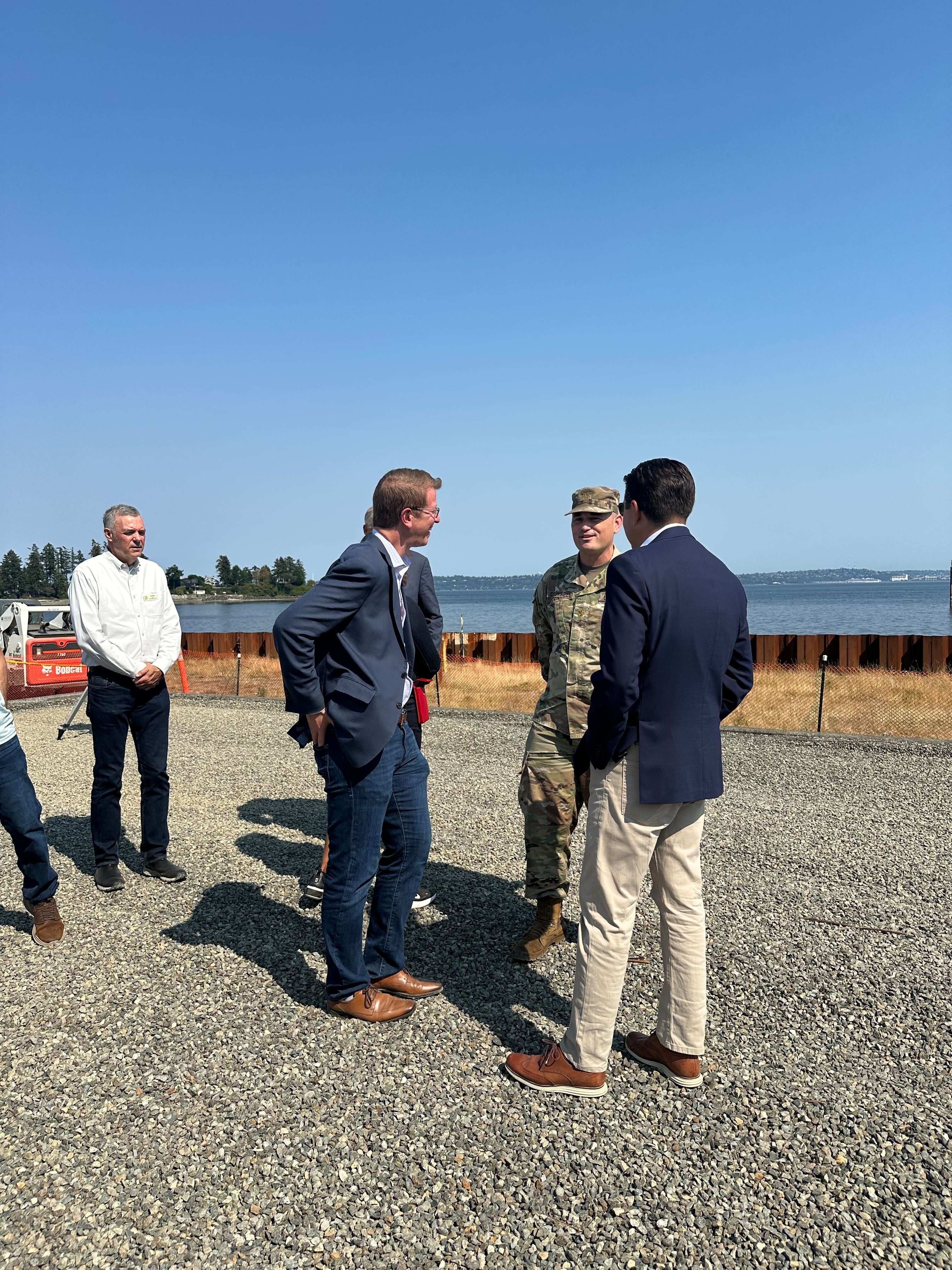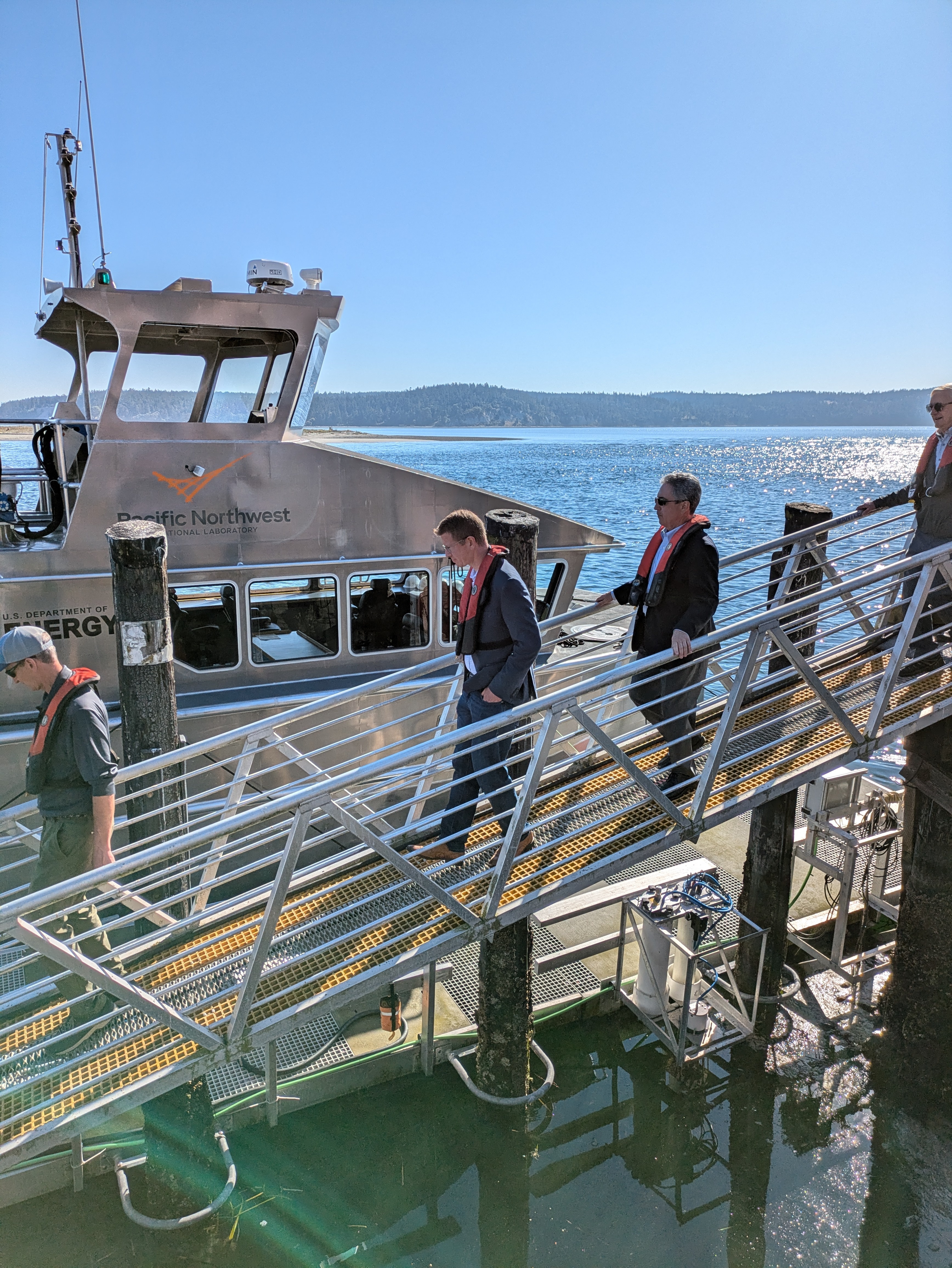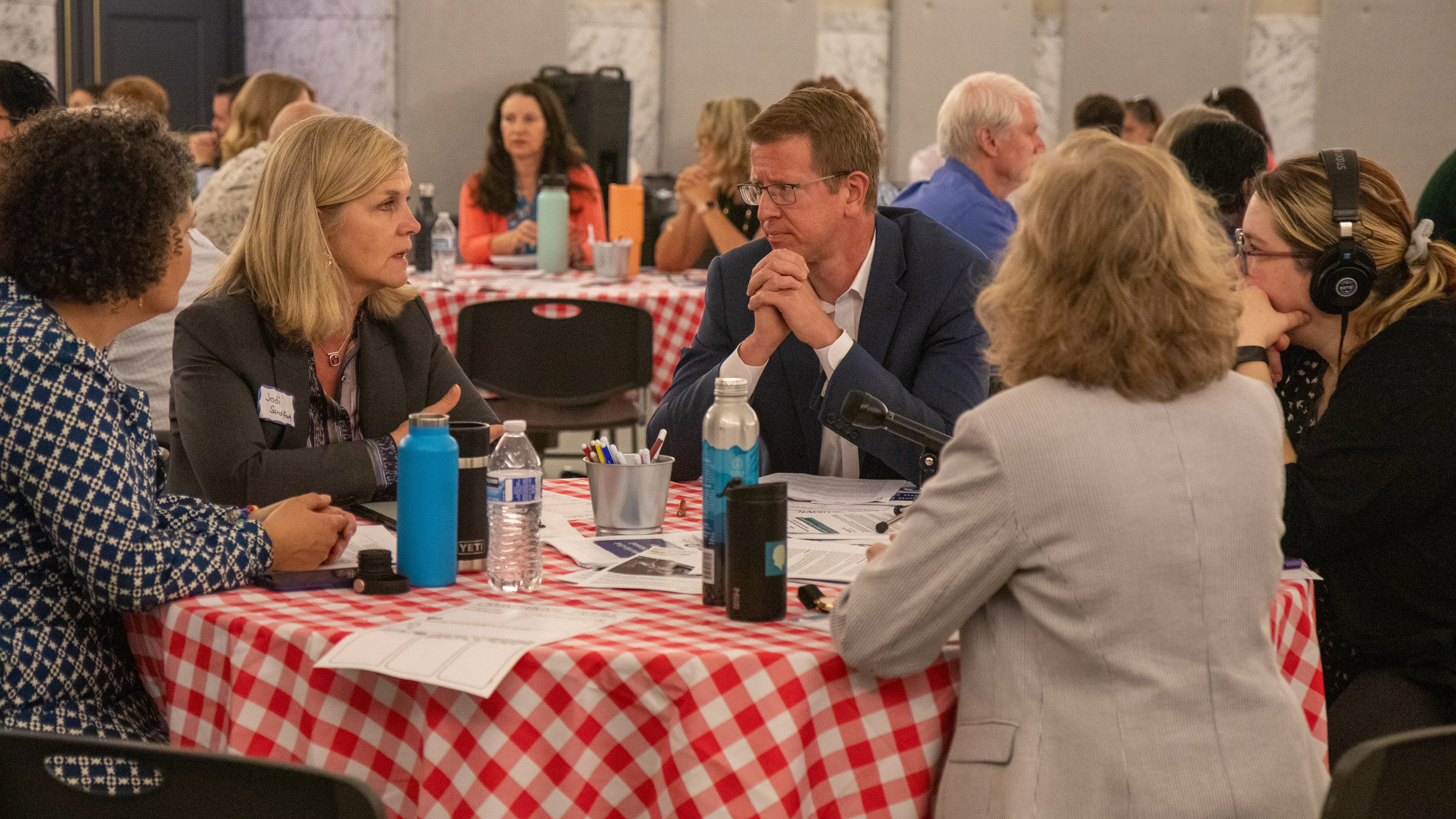Working to Avoid a Shutdown – Plus, a Major Win for Environmental Clean-Up in Our Region
Hello Folks –
September is well underway. Kids are in school, football season is cooking (nice overtime win by the Seahawks!), and I even bought a pumpkin!
September also means Congress is back in session in Washington, D.C. with several items on the docket in the coming weeks. There’s a lot to cover in this week’s newsletter, so let’s get right into the news.
So… What’s Happening with Government Funding?
Over the years, I have shared update after update on the government funding situation, the potential of government shutdowns, and my efforts as a member of the House Appropriations Committee to ensure the programs, projects, and priorities of the folks I represent get the federal resources and investments needed to make things better here in our region.
As we approach the end of September, we are faced with the end of the fiscal year, as government funding will expire on September 30th. Unfortunately, because House Republicans have so far sought to link unrelated pieces of legislation to government funding bills. My hope is that prior to my next newsletter, Democrats and Republicans will agree to a stopgap funding bill with the hopes for passing a bipartisan, full-year agreement before the year is over.
There are three things to remember here.
First – a government shutdown would be incredibly stupid. Shutdowns wreak havoc on federal workers like those who protect our national parks, civilian shipyard employees, and the entire Coast Guard. But on top of that, they hurt our economy. I still remember speaking with a hotel owner who said they lost three weeks of bookings during a shutdown because the national parks were closed.
Second – a government shutdown is entirely avoidable. Usually, shutdowns are caused when the two parties can’t agree on the overall size of the spending pie, how much goes to defense, and how much goes to non-defense.
You may recall that there was a bipartisan agreement passed that set those levels. Unfortunately, some of the Republicans on the very far right are pushing the Speaker of the House to walk away from that agreement (and, sadder still, he has). If we can stick to the agreement and reject efforts by the very far right to use these spending bills as a means to fight culture war issues, a shutdown is entirely avoidable.
Third and finally, you should know this – I’m going to fight like heck to prevent a shutdown.
A shutdown would be particularly damaging in our region. Why? Because the federal government (and particularly the Defense Department) is our region’s largest employer.
In our region, we know federal workers aren’t political chess pieces; they are our neighbors, friends, and dedicated workers who perform essential tasks ranging from managing federal forests to providing crucial public services. I’ll keep fighting for them.
Working to Improve Maternity Care Access for Servicemembers
If you serve this country, Congress should have your back and invest in you and your family. In our neck of the woods, we have seen detrimental impacts to servicemembers and their families through the closure of Naval Hospital Bremerton’s labor and delivery unit, leaving many pregnant servicemembers and dependents without access to nearby care, often requiring expectant mothers to travel a significant distance.
That’s why I recently introduced the Maternal and Infant Delivery: Wellness, and Integration with Vital Expertise Support (MIDWIVES) for Servicemembers Act, legislation that would increase access to maternity care for servicemembers by extending TRICARE coverage to additional types of certified midwives through a 5-year pilot program.
By expanding access to midwife care under TRICARE, this legislation makes significant strides in supporting servicemembers and their dependents who need accessible maternity healthcare. This would directly ensure that those affected by labor and delivery unit closures, like the one at Naval Hospital Bremerton, are covered by other available providers and are able to get the medical care they need when they need it.
Investing in Environmental Cleanup in Kitsap County
When many folks think about investing in our infrastructure, they think about building new roads, bridges, and ferries. And that’s spot on – if you drive around Western Washington, and honestly most of America, you’ll see lots of construction right now.
Much of it is the result of the Bipartisan Infrastructure Law, signed by the Biden-Harris Administration 3 years ago, which is making once-in-a-generation investments in America’s infrastructure. The Bipartisan Infrastructure Law also included a substantial investment in environmental remediation at Superfund Sites, making it one of the largest investments in American history to address the legacy pollution that harms the public health of communities and neighborhoods.
Earlier this month, I was thrilled to join the U.S. Environmental Protection Agency (EPA) Administrator for Region 10, Casey Sixkiller, Washington State Governor Jay Inslee, leaders of the Suquamish Tribe, and so many other partners from around our region on Bainbridge Island to learn about a new major investment in cleanup efforts at the Wyckoff/Eagle Harbor Superfund site. Thanks to an $80 million investment from the EPA, cleanup on this site(which once hosted one of the largest wood-treatment facilities in the United States) can move to the next step.
.jpg)
The ultimate goal of this important project, in addition to cleaning up soil and water contamination, is to turn the site into a public park for residents and visitors alike to enjoy in the years to come. Not only that, but this important cleanup effort will also help protect the future of Puget Sound, and the health and safety of folks who live in our neck of the woods.
Investments like these are part of the reason I supported the Bipartisan Infrastructure Law – and they are strong signs that the Biden-Harris Administration is delivering for the people in every corner of the country.

Working for You

Checking in with Our Region’s Tribal Partners
It’s important to me to check in with the various tribal partners in our region and ensure I’m doing everything I can to best support them. Most recently, I met with Confederated Tribes of the Chehalis Reservation Chairman, Dustin Klatush. I had the chance to learn more about a number of the Tribe’s priorities and projects, including the Chehalis Tribal Community Center, the early learning center, the Chehalis Tribal Wellness Center, and business development for tribal community members through the Lucky Eagle Hotel & Casino. Proud to be a partner!

Celebrating Innovation in Marine Science and Research
I was honored to join Senator Maria Cantwell, the team from Pacific Northwest National Laboratory, and representatives from the U.S. Department of Energy in Sequim to celebrate the arrival of the first hybrid-electric research vessel in the DOE fleet, the RV Resilience. This new vessel will help usher in a new era of research at PNNL-Sequim!

Engaging in Civic Discourse
Earlier this month, I had the opportunity to join Washington State Lieutenant Governor Denny Heck, Dean of the UW’s Evans School of Public Policy and Governance, Jodi Sandfort, and Director of Braver Politics, Elizabeth Doll, at UW Seattle’s Project for Civic Health Summit. This event was a great opportunity to discuss how Washingtonians can do their part to foster civic engagement and to overcome polarization.
OK – that’s it for now, folks. As always, I’m honored to represent you.
Sincerely,
Derek Kilmer
